What’s it like living in Muxía (Galicia)
If you’re curious about Galicia you’ll love this interview. Sarah is a Spanish teacher and official translator who moved to Muxía to start a family. She tells you all about Galicia and describes what makes it different to most regions of Spain.
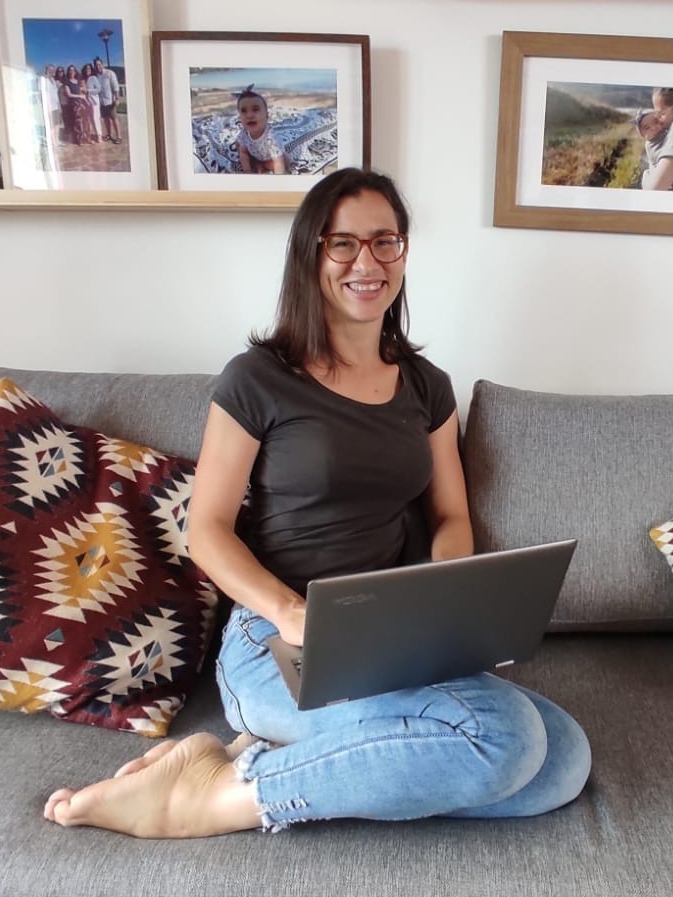
Name: Sarah Blanquet
Age: 34
Country of Origin: Belgium
Number of years in Spain: more than 30!
Hi Sarah! Can you please tell me about yourself?
¡Hola! My name is Sarah Blanquet and I am a passionate Spanish teacher and a sworn translator (English-Spanish). I was born in Belgium, raised in Navarra, and, after many years in different cities and countries, I now live in Muxía (Galicia) with my husband and two young daughters.
How did you end up moving to Spain?
I came to Spain many years ago… In fact, I was a baby.
My dad had a job offer and my parents decided to move to Tudela, Navarra when I was one year old. Back then, it was a complete adventure: they didn’t know Spanish, there was no Google Translate, online maps or sites such as this one to guide the way…
They decided to stay and thus my identity was forever linked to Spain, despite traveling and living abroad for many years.
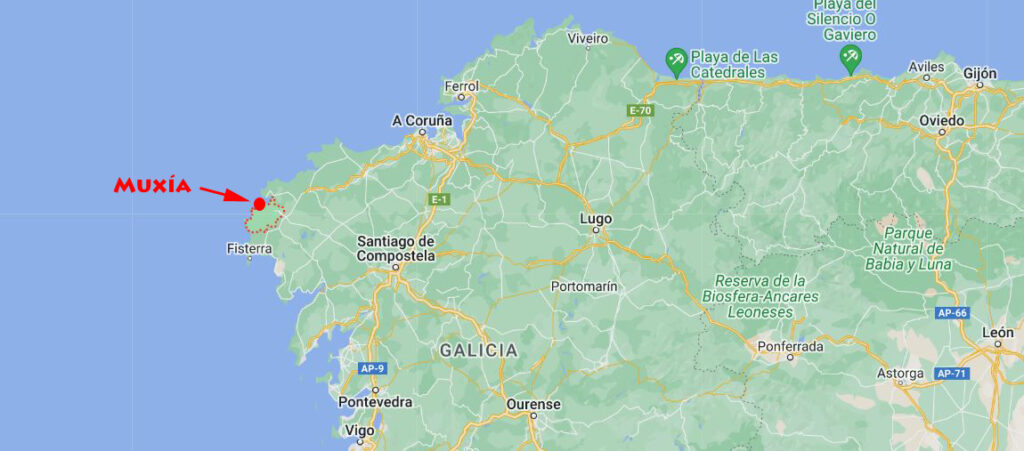
You’ve lived in a few places before moving to Muxía where you are now. Why Muxia?
It’s something I often get asked, because it’s quite surprising given my international background. I had itchy feet for a long time: I’ve lived in Madrid, Montreal, Forlì (Italy), Bilbao, Barcelona, Campinas (Brasil), Stockholm…
Then, after many years of globetrotting, I finally landed back in Madrid, which was a place that offered the “Spanish lifestyle” I was missing abroad and job opportunities.
I had some great years there, but once I had plans to “settle down” and have a family, I quickly realized Madrid didn’t offer what I was looking for and decided to move to a small town, Muxía, closer to my mom.
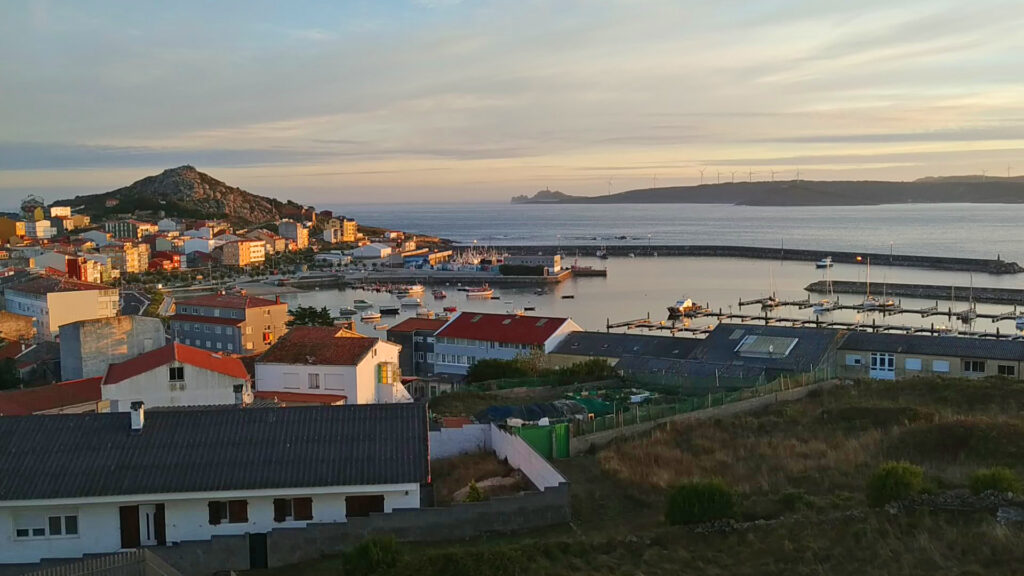

A few useful Resources
You’ll need Spanish private health insurance to apply for all Spanish visas. You can purchase your insurance policy online using this link.
Immigration lawyers. We recommend Javier Rodriguez. His prices are excellent and everyone we’ve passed on to him has raved about his personalized service. Write me (Frank) at [email protected] if you want more information.
Having lived in many places, including many years in Madrid, what has the adjustment been to living in Muxía?
Madrid and Muxía are as different as night and day. From here, I love that people know my name, that I can walk everywhere and that it’s possible to live a simple life without the hurries and stress of big cities.
I also really enjoy being close to hiking paths, being able to watch sunrises and sunsets from my window and the tranquillity and peace I feel when I head out the the Santuario da Barca. I do miss a bit of the nightlife and cultural events of Madrid, but I get to visit often and, with two young kids, these are not my priority anymore.
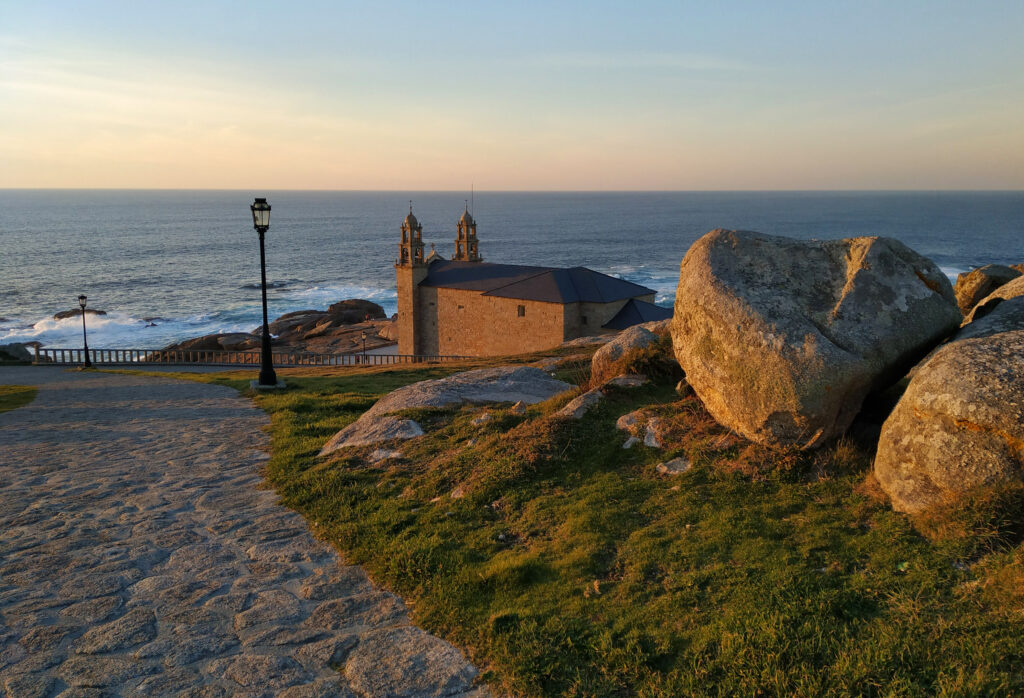
And how is this region different from other places you’ve lived in Spain?
I would say it’s very different from many other parts of Spain. Above all, there is the location: we are at the “end of the world” as Romans called Finisterre, which is just 30 km. from here. So it’s quite a secluded area: most people still speak gallego and celebrate ancient traditions such as Samaín, Magosto or San Xoan.
Nature is also very different from other regions of Spain. We are surrounded by woods and rivers and it’s much hillier than other places Spain where I’ve lived. And there is the weather too, of course. It is rainier and cooler. For me, it’s really nice to be able to sleep under a duvet all year round.
Another difference is that even in tiny villages like mine many people have lived abroad, both in Latin America and Europe. This is great, because I think it’s one of the reasons they are quite open minded and hospitable.
For the rest, I think Galicia does have things in common with the rest of Spain. Among them, my two favorites are that family is a core value and that Galicians looooove food.
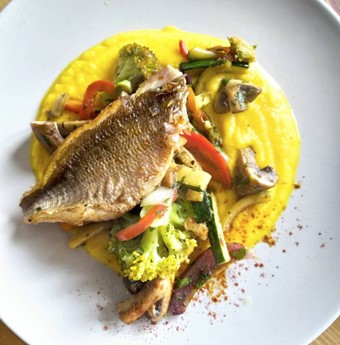
You’re in Galicia. We get a lot of people asking about Galicia, mostly because of the extreme weather in other places. People are curious about “green” Spain. What would you tell anyone thinking of moving to Galicia? What do you see as the pros and cons of living in the region?
Indeed, the weather in many places of Spain is becoming unbearable in the summer. Here, we’re lucky to be by the seaside, so we get warm(-ish) weather all year round. It’s never scorching hot and it’s never freezing cold either.
It does rain a lot more than in the south (and it’s quite windy!), but it’s the price to pay for stunning nature, with beaches and forests side-by-side. And the good thing about being by the seaside is that rain usually comes and goes, so it’s not as gray as in inland Galicia.
Another positive thing about this region is that, even though it is quite popular for holidays, you can still find deserted beaches and forests…even in summer. And with so many small beaches and towns, there’s so much to discover!
The only downside for me, since I don’t drive, is that public transport is not very good. There are few buses and the schedules are not always convenient. However, Santiago and A Coruña are very well connected. They have many international flights and high speed trains, so long distance travelling is easy from there.
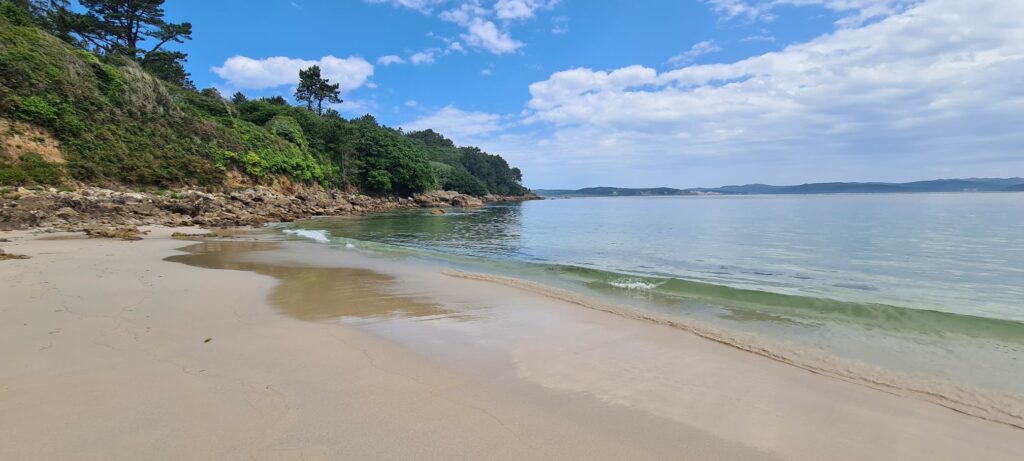
Muxía looks very pretty and I was surprised to see that it has a Parador. Do you get a lot of people visiting Muxía?
We do! Muxía has changed radically in the past years. I used to spend my summer here when I was a teen and the evolution is jaw dropping. Many old houses have been rebuilt, there are new bars and restaurants, new hotels and hostels are opening…
One of the key factors is probably the internationalization of the Camino de Santiago (Saint James way). You see, Muxía is one of the ending points (km. 0) of the Camino routes which cross Spain. So we welcome many pilgrims in this area, especially those who are looking for a reflective stop before heading home. Also, I think the popular movie The Way (2010) with Martin Sheen, which was partly recorded here, was one of the best advertisements for the area.
I’m also noticing Spaniards are more and more interested in spending their holidays here, escaping the summer heat. Since COVID, you can also see many campervans driving around. Finally, the opening of the Parador was another turning point. It’s a very beautiful hotel integrated in nature, with stunning views and a great SPA.
This area was a hidden treasure until not so long ago, but I think the secret is out!
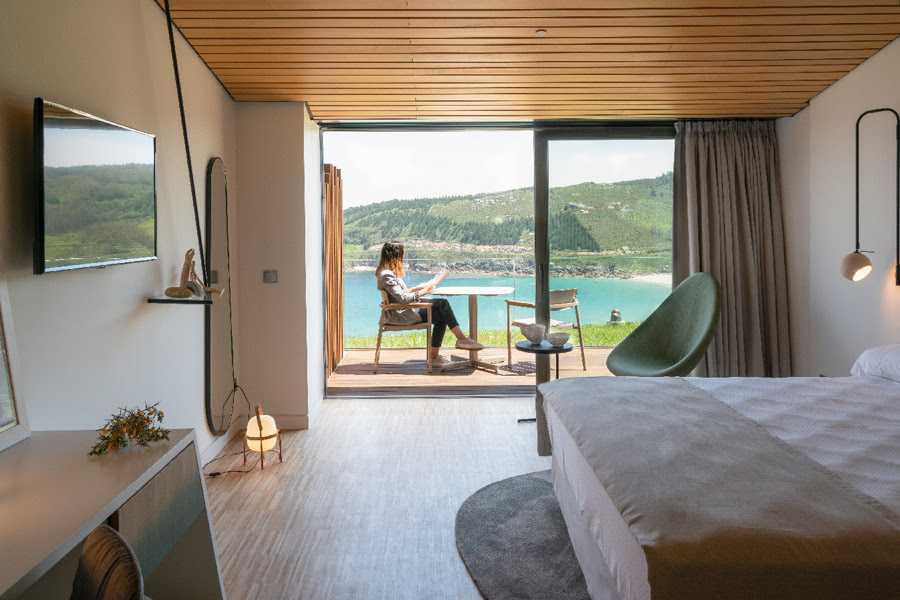
What would you say are the most popular cities/towns for expats moving to Galicia?
A Coruña is definitely a place where there is a vibrant international community, thanks to a lovely Facebook group, Expats in Coruña. Santiago is quite international too.
At a more local level, there is also a great co-living space, Islow Coliving, in Laxe, which organizes many cool events and attracts digital nomads and families from abroad.
From what I see online, I think there is definitely growing interest in the area, but it is true that the international community is probably not as big as in southern Spain. However, this also guarantees you meet locals and live a more “authentic” lifestyle, which I think is awesome.

I heard somewhere that it can be hard to find apartments to rent in Galicia. Is there anything to this? Are people thinking of moving to Galicia forced into buying rather than renting?
It is true, especially on the coast. Since it’s becoming a holiday destination, as I mentioned above, most people prefer to rent their houses only for the holidays, as it is way more profitable than long term rentals.
Another fact to bear in mind is that many offers are only found through word of mouth, so it can be quite hard if you don’t know anyone and/or you don’t speak Spanish.
So if you’re thinking of moving here, I would say the best option is to rent a house for the winter months and get to know locals. Once you have been here for a while and people know you, it’s much easier to hear about renting and buying opportunities.
So if you’re thinking of moving here, I would say the best option is to rent a house for the winter months and get to know locals. Once you have been here for a while and people know you, it’s much easier to hear about renting and buying opportunities.
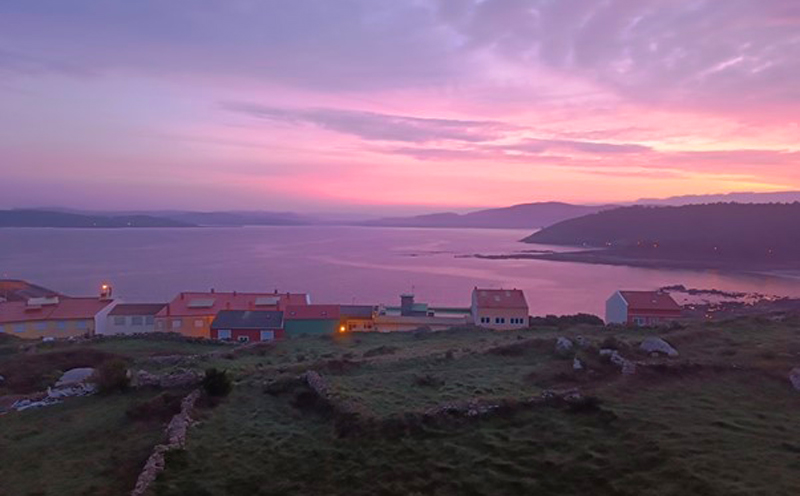
You love languages and teach Spanish to foreigners. When I visited your website, I noticed that you combine Spanish learning with fun activities in Muxía (going out for tapas, going for a hike, going to a Spa session). How/why did you come up with this concept of mixing immersive language courses with tourism activities?
It came really naturally for me. I’ve always enjoyed discovering new places, cultures and languages, so I decided to share this passion with my students. I find that passion and curiosity are key to learning, so I try to incorporate as much as possible of my own passions and discoveries in all my lessons.
All the activities I share in my immersion courses are things I really enjoy doing myself. In class, I share some creative learning techniques such as board games, journaling, watercolour painting…
After the lessons, I take my students on walking tours to discover the secrets and legends of the area, we visit the market and shops to see local products and we also prepare recipes which my students then get to take home with them.
Finally, I also collaborate with other local businesses who offer yoga, horseback riding and surfing lessons. I think this type of experience proves that you don’t really need to travel hundreds of miles to experience adventure.
My hope is for my students to get to enjoy this little town in all its richness and diversity and to go back home feeling that something in them has changed… And it seems to be working, a couple of my students even decided to move here for good!
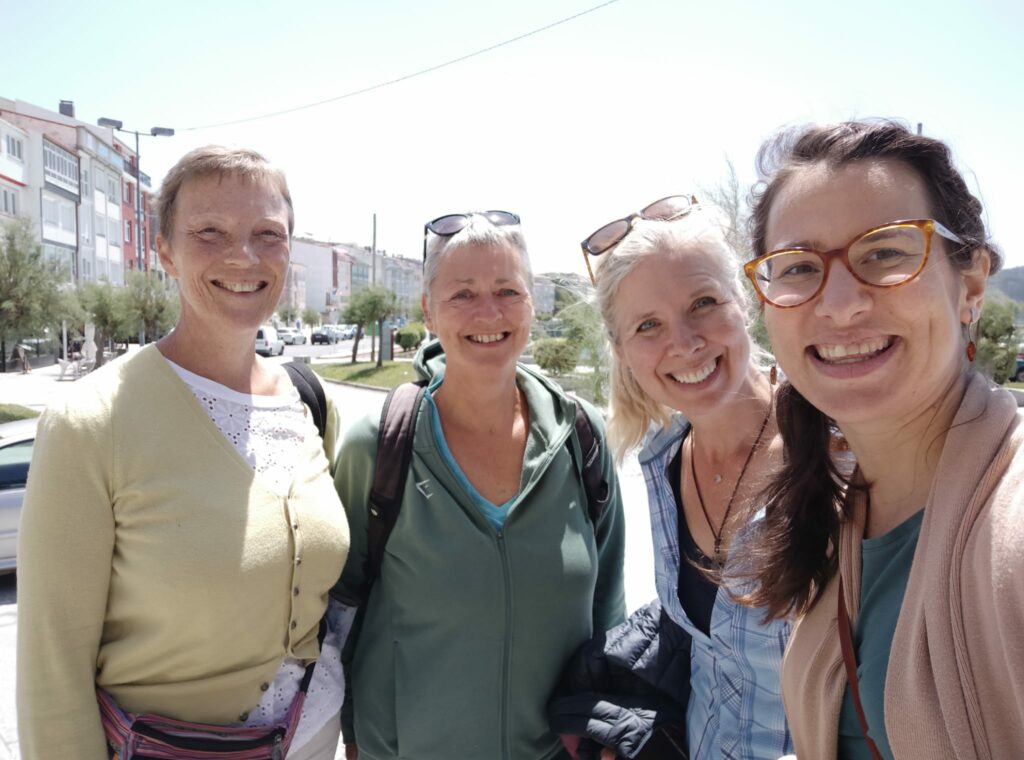
You mentioned that you’re also a sworn translator. Does that mean you help people with translations for their Visa documentation etc?
Yes, I do translations of birth and marriage certificates, DBS checks and any other official document needed for the process of obtaining visas and the Spanish nationality. For the latter purpose, I also help students pass the CCSE and DELE A2 exam. I find both tasks really enriching as I get to contribute, even if just a tiny bit, to other people achieving their dreams of living in Spain.
Apart from your work as a teacher and translator, how do you do to keep busy Sarah? What’s your daily life like in Muxía?
With two young kids, my days are always full to the brim!
During weekdays, in the mornings, I work while my oldest daughter goes to a fantastic public school right by my house and my youngest stays with my mom or my husband. In the afternoons, we go to the local library or the playground by the sea. On weekends, we bake, cook, make crafts, read or watch a movie together.
During summer, we spend a lot of time outdoors. We have picnics at the beach, go for a swim and enjoy doing small hikes to beaches such as Lourido or Os Muiños. We also really enjoy local fiestas such as the Festa do Congrio, where you can taste conger eel and listen to traditional music, or the Magosto which celebrates the beginning of autumn with chestnuts. And our favorite is definitely the Mercado das Rutas do Mar, which is a fantastic medieval on the second weekend of August.
Overall, it’s a simple day-to-day life, there’s nothing really fancy about it, but I feel we’re lucky to be able to enjoy it.
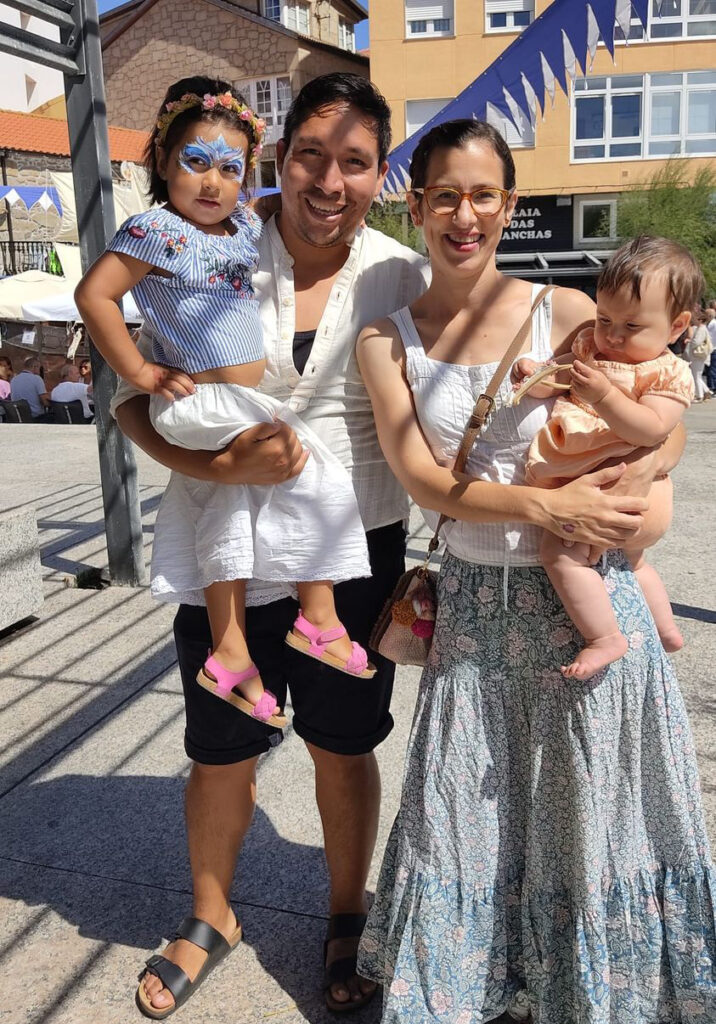
What do you think the future holds Sarah? Do you think you’ll still be in Muxía 10 years from now?
I really don’t know what the future holds.
I do have very exciting plans for this year, as I’ll be walking the Camino de Santiago with my daughters and my husband. Caminos have always been part of our lives. My husband and I walked a camino from Sarria to Santiago a year after we met. Then, from Biarritz to Castro Urdiales when I graduated from my master’s at the Universidad de Deusto (Bilbao). Before getting married, my husband walked from his house in Madrid to Muxía. And now that we’re a family, it seems natural to walk with my daughters to show them the beauty of the region we now call home.
But in ten years from now… Who knows! If someone would have told me 10 years ago I’d be living here, it’d have laughed in disbelief. A part of me still longs for far away adventures and travels, but I also know that new adventures can be found at your doorstep.
Thank you for doing this interview Sarah!
Don’t forget, Sarah is a Spanish teach as well as a sworn translator. So if you want to perfect your Spanish or need a translator for your documents, reach out to her on her website.
Related: Why this American couple chose Seville (and cost comparisons!)
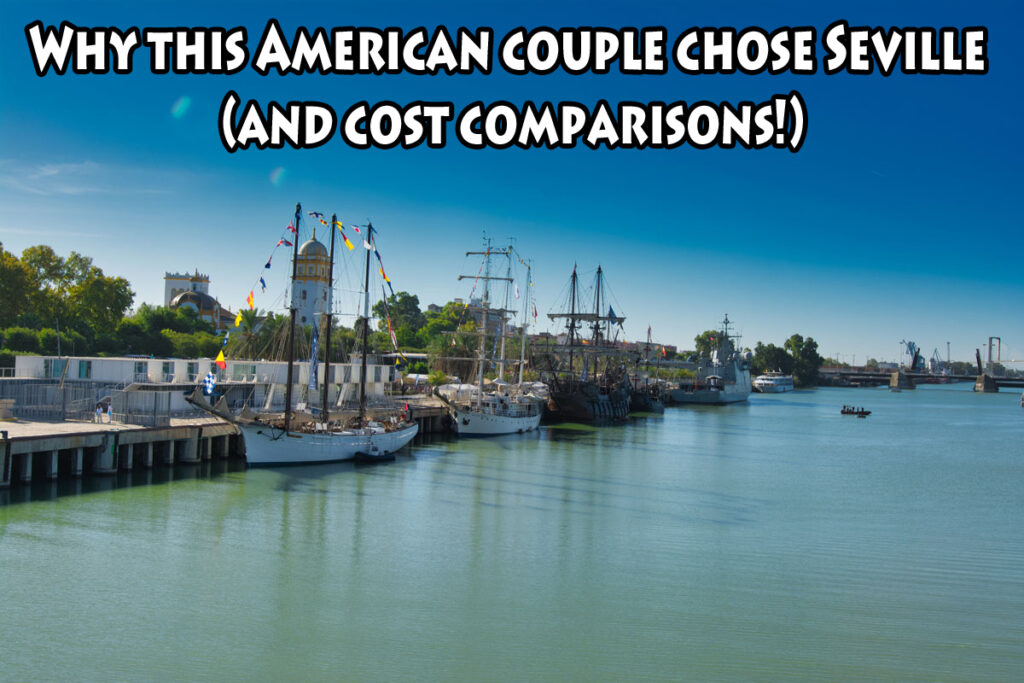
Related: Why Spain? How we got here
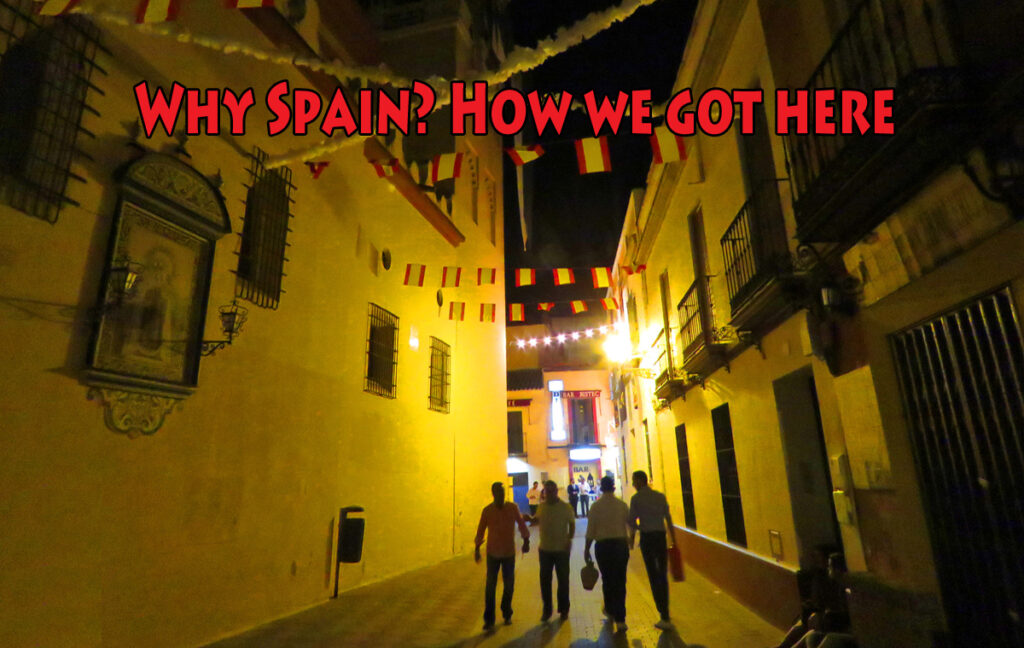
Related: What’s it like living in Galicia?
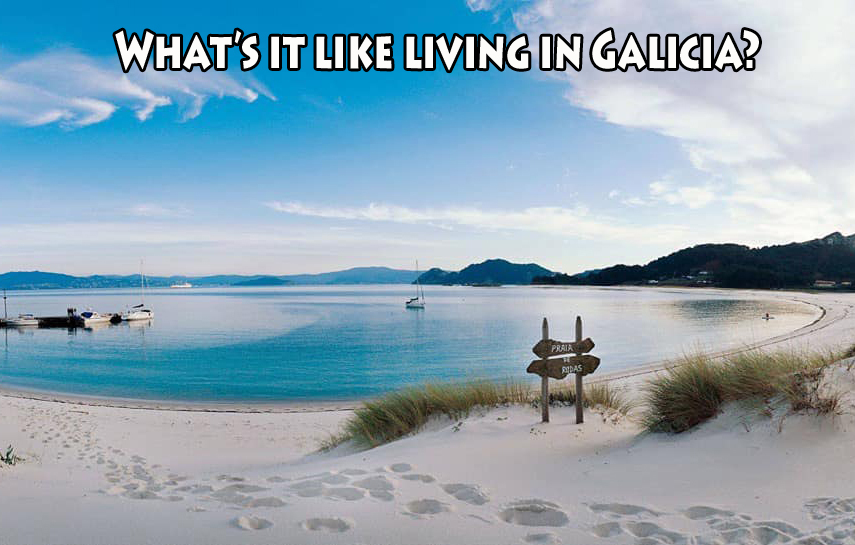

This is a great representation of the area and I am so pleased that North Western Spain is getting some recognition.
A lovely article and I hope it gives people the answers they are looking for 🙂
Thank you for the kind comment Daniella!